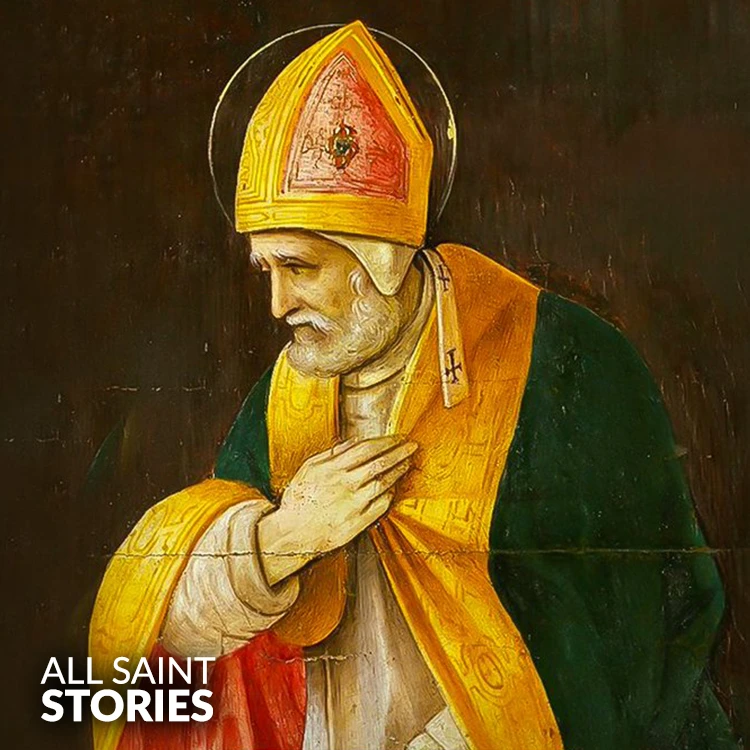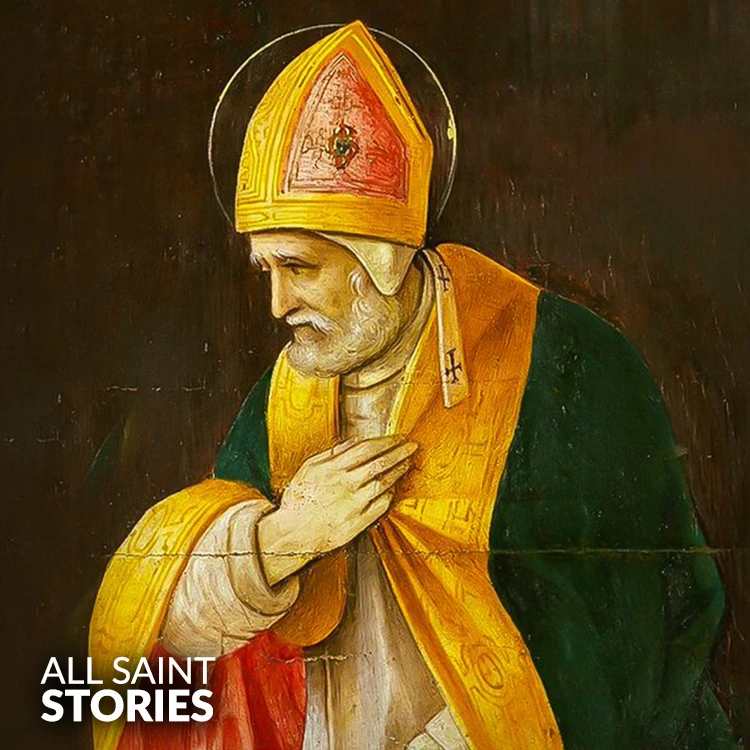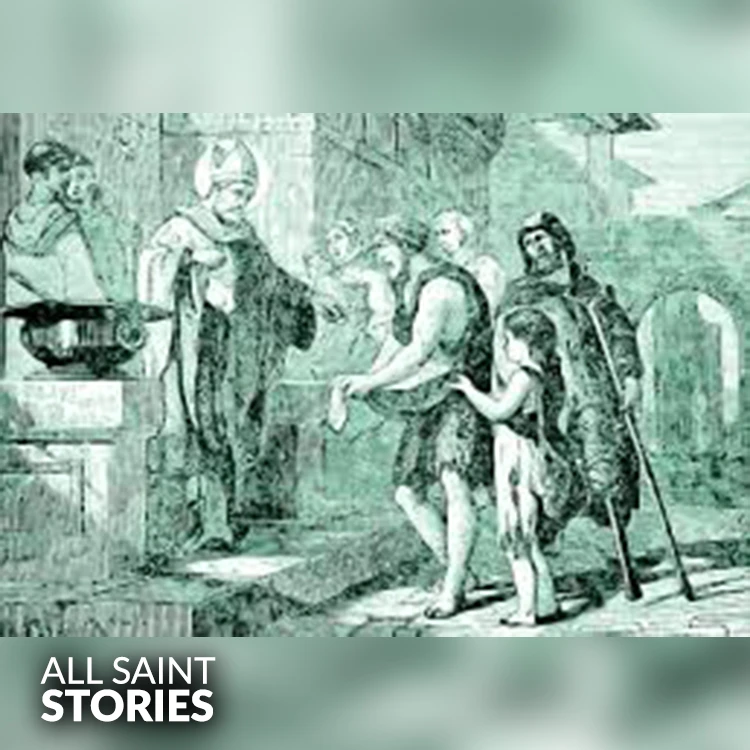Saint Albinus, faithful servant of God, you devoted your life to prayer and wisdom. Intercede for us that we may grow in faith, strengthen our hearts in charity, and walk in the light of Christ’s love. Guide us through our challenges and help us remain steadfast in our devotion to God. Through your intercession, may we find peace and grace. Amen.
ST. ALBINUS OF ANGERS
ST. ALBINUS OF ANGERS

St. Albinus of Angers (c. 470–550) was a French bishop known for his deep piety and commitment to justice. He became a monk and later the Bishop of Angers, where he defended the poor, fought against corruption, and advocated for the release of unjustly imprisoned individuals. His miracles and holiness earned him great veneration.
St. Albinus of Angers was born around 470 in Brittany, France, into a noble family. From an early age, he demonstrated remarkable piety and a deep desire to dedicate himself to God. He entered a monastery, where he became known for his ascetic lifestyle and devotion to prayer. His virtues led to his election as abbot, a position in which he guided his community with wisdom and humility.
In 529, Albinus was chosen as the Bishop of Angers, a role he accepted with reluctance out of humility. As bishop, he became a fearless advocate for the poor and the oppressed. He was particularly known for his efforts to free prisoners who had been unjustly detained, even confronting powerful figures to demand justice. His dedication to upholding Christian values made him widely respected but also earned him opposition from corrupt officials.
St. Albinus was deeply committed to moral reform within society. He spoke out against immorality, corruption, and injustices that plagued the people. His influence extended beyond Angers, as he participated in the Council of Orleans in 538, where he supported reforms to strengthen the Church’s role in protecting the vulnerable.
Many miracles were attributed to St. Albinus, both during his life and after his death. One of the most famous accounts describes how his prayers caused the walls of a prison to crumble, allowing innocent prisoners to escape. His reputation for holiness continued to spread, and pilgrims traveled to his tomb, seeking his intercession for healing and protection.
St. Albinus passed away on March 1, 550. His tomb in Angers became a site of veneration, and his feast day is still celebrated on March 1. His legacy remains one of unwavering faith, compassion for the oppressed, and a fearless commitment to justice.
Video Not Found
The information on this website is compiled from various trusted sources. While we aim for accuracy, some details may be incomplete or contain discrepancies.
If you notice any errors or have additional information about this saint, please use the form on the left to share your suggestions. Your input helps us improve and maintain reliable content for everyone.
All submissions are reviewed carefully, and your personal details will remain confidential. Thank you for contributing to the accuracy and value of this resource.
Credits & Acknowledgments
- Anudina Visudhar (Malayalam) – Life of Saints for Everyday
by Msgr. Thomas Moothedan, M.A., D.D. - Saint Companions for Each Day
by A. J. M. Mausolfe & J. K. Mausolfe - US Catholic (Faith in Real Life) – Informational articles
- Wikipedia – General reference content and images
- Anastpaul.com – Saint images and reflections
- Pravachaka Sabdam (Malayalam) – Saint-related content and insights
We sincerely thank these authors and platforms for their valuable contributions. If we have unintentionally missed any attribution, please notify us, and we will make the correction promptly.
If you have any suggestion about ST. ALBINUS OF ANGERS
Your suggestion will help improve the information about this saint. Your details will not be disclosed anywhere.
© 2026 Copyright @ www.allsaintstories.com





 English
English
 Italian
Italian
 French
French
 Spanish
Spanish
 Malayalam
Malayalam
 Russian
Russian
 Korean
Korean
 Sinhala
Sinhala
 Japanese
Japanese
 Arabic
Arabic
 Portuguese
Portuguese
 Bantu
Bantu
 Greek
Greek
 German
German
 Dutch
Dutch
 Filipino
Filipino